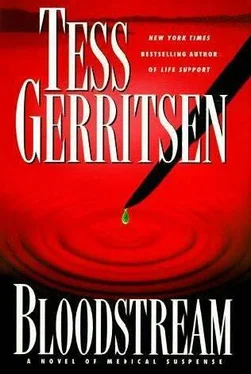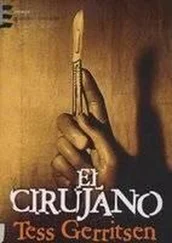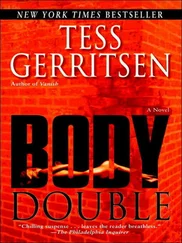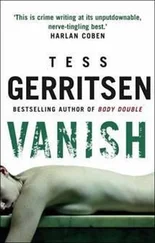Max gestured her into his cottage and shut the door against the bitter wind.
“How is Noah this morning?”
“I examined him from head to toe, and he seems perfectly healthy except for a stuffed-up nose. I left him in bed with juice and decongestants.”
“And the phosphorescence? Did you culture it?”
“Yes. I sent the swab off right away.” She took off her coat. Max had finally been able to get a fire going in the woodstove, and the cottage felt stiflingly hot. She almost preferred the bone-chilling wind outside. In here, surrounded by Max’s clutter, the air hazy with smoke, she thought she might suffocate.
“I’ve just made coffee,” he said. “Have a seat-if you can find an empty chair.”
She took one glance around the claustrophobic room and followed him, instead, into the kitchen. “So tell me about those water culture results. The ones you took before the lake froze.”
“The report came back this morning.”
“Why didn’t you call me right away?”
“Because there was nothing much to report.” He shuffled through a stack of papers on the kitchen counter, and handed her a computer printout. “There. The final ID from the lab.”
She glanced down the long list of microorganisms. “I don’t recognize most of these,” she said.
“That’s because they’re not pathogens-they don’t cause disease in humans. What’s on that list are just the typical bacteria and algae you’d find in any northern freshwater pond. The coliform count is borderline high, which may indicate that someone’s septic system is leaking from the shoreline, or into one of the feeder streams. But overall, it’s an unremarkable bacterial spectrum.”
“No phosphorescent Vibrio?”
“No. If Vibrio was ever in that lake, then it didn’t survive very long, which makes it an unlikely source of disease. Most likely the Vibrio isn’t a pathogen, but an incidental bacteria. Harmless, like all the other bacteria we carry around in our bodies.”
She sighed. “That’s what the state health department told me.”
“You called them?”
“First thing this morning. I was in such a panic about Noah.”
He handed her a cup of coffee. She took one sip, then set it down, wondering if Max had used bottled water to brew it, or if he had unthinkingly drawn the water from the tap.
From the lake.
Her gaze drifted out the window, to the unbroken expanse of white that was Locust Lake. In so many ways, that wide body of water defined the everyday course of their lives. In summer they swam and bathed in its water, pulled struggling fish from its depths. In winter they glided over its surface on skates, insulated their homes against the merciless winds that howled across its ice. Without the lake, the Town of Tranquility would not exist, and this would be only another valley in a dark expanse of forest.
Her beeper went off. On the digital readout was a number she didn’t recognize, with a Bangor exchange.
She made the call from Max’s phone, and a nurse from Eastern Maine Medical Center answered.
“Dr. Rothstein asked us to call you, Dr. Elliot. It’s about that craniotomy patient you referred here last week, Mr. Emerson.”
“How’s Warren been doing since his surgery?”
“Well, the psychiatrist and the social worker have seen him several times, but nothing seems to be helping. That’s why we’re calling you. We thought, since he’s your patient, you might know how to handle this situation.”
“What situation?”
“Mr. Emerson refuses all his medications. Even worse, he’s stopped eating. Mi he’ll take now is water.”
“Does he give a reason?”
“Yes. He says it’s his time to die.”
Warren Emerson seemed to have shrunken since the last time she’d seen him, as though life itself was slowly leaking from him like air from a balloon. He sat in a chair by the window, his gaze focused on the parking lot below, where snow-covered cars were lined up like soft bread loaves. He did not turn to look at her when she walked into the room, but just kept staring out the window, a tired man bathed in the light of a gray day. She wondered if he realized she was there.
Then he said, “It doesn’t do any good, you know. So you might as well leave me alone. When your time comes, it comes.”
“But it isn’t your time yet, Mr. Emerson,” said Claire.
At last he turned, and if he was surprised to see her, he didn’t show it. She had the feeling he was beyond surprise. Beyond pleasure or pain. He watched with bland indifference as she crossed toward him.
“Your operation was a success,” she said. “They took out the brain mass, and the chances are, it’s benign. You have every hope of a complete recovery A normal life.”
Her words seemed to have no effect on him. He simply turned back to the window.
“A man like me can’t have a normal life.”
“But we can control the seizures. We might even be able to stop them from ever-”
“They’re all afraid of me.”
That statement, spoken with such resignation, explained everything. This was the malady for which there was no cure, from which be could never recover. She could offer no surgery that would resect the fear and revulsion his neighbors felt toward him.
“I see it in their eyes,” he said. “I see it whenever I pass them on the street, or brush against them in the grocery store. It’s like they’ve been burned by acid. No one will touch me. No one has touched me in thirty years. Only doctors and nurses. People who have no choice. I’m poison, you see. I’m dangerous. They all stay away, because they know I’m the town monster.”
“No, Mr. Emerson. You’re not a monster. You blame yourself for what happened all those years ago, but I don’t believe it was your fault. It was a sickness. You had no control over your actions.”
He didn’t look at her, and she wondered if he had even heard her.
“Mr. Emerson?”
He was still gazing out the window. “It’s kind of you to visit,” he murmured.
“But there’s no need to lie to me, Dr. Effiot. I know what I did.” He drew in a deep breath and slowly released it, and with that sigh he seemed to shrink even smaller. “I’m so tired. Every night I go to sleep expecting not to wake up again. Hoping not to. And every morning, when I open my eyes, I’m disappointed.
People think it’s such a struggle to stay alive. But you know, that’s the easy part. The hard part is the dying.”
There was nothing she could say. She looked down at the untouched meal tray by the window. A chicken breast in congealed gravy, a mound of rice, kernels glistening like tiny pearls. And bread, the staff of life. A life Warren Emerson no longer wished to experience or to suffer. I cannot make you want to go on living, she thought. I can force feed liquid nourishment, inject it into a tube that threads up your nostril and into your stomach, but I cannot breathe joy into your lungs.
“Dr. Elliot?”
Turning, Claire saw a nurse standing in the doorway.
“Dr. Clevenger from Pathology is on the phone, trying to reach you. He’s on line three?’
Claire left Warren Emerson’s room and picked up the extension in the nurses’ station. “This is Claire Elliot.”
“I’m glad I caught you,” said Clevenger. “Dr. Rothstein told me you’d be driving over this afternoon, and I thought you might want to come down to Pathology and take a look at these slides. Rothstein’s on his way down now.”
“Which slides?”
“From your craniotomy patient’s brain mass. It took a week to fully fix the tissue. I just got the slides back today”
“Is it a meningioma?”
“Not even close.”
“Then what is it?”
She heard the undertone of excitement in his voice. “This you’ve got to see to believe.”
Читать дальше
Конец ознакомительного отрывка
Купить книгу












